Political assassination 25 years ago the Ceausescu couple were shot
From kingdom to people's republic
For most of its new and newest stories Romania remained the far periphery of Europe. After being liberated from vassal dependence in relation to the Ottoman Empire, independent Romania turned into a country with tremendous social polarization, high corruption of power, and arbitrariness of officials. The Hohenzollern dynasty that ruled Romania and the Romanian aristocracy and oligarchy that surrounded it occupied frankly anti-national positions and cared solely about their own selfish interests, while not forgetting to throw nationalist slogans into the masses and cultivate the myth of “Great Romania”, “glorious data”, “glorious damers”; hostility to all surrounding countries.
After the end of the First World War, right-wing ideas began to gain popularity in Romania, which resulted in the formation of a number of nationalist revolutionary organizations. The most famous among them was the "Iron Guard". The political situation in Romania at the end of 1930's led to the fact that the actual power in the country as a result of a military coup seized General Ion Antonescu. This right-wing radical Romanian warlord proclaimed himself the “conductor”, that is, the “leader”, the “führer”. During the Second World War, Romania took the side of Hitler's Germany, which was not surprising, given the ideological affinity of the ruling regimes and the long-standing political and economic ties between the two countries.
However, as the Hitler’s plans of a quick victory over the Soviet Union collapsed and, moreover, the Wehrmacht began to retreat on the Eastern front, dissatisfaction with the military-political course of Antonescu grew in the Romanian ruling circles. Moreover, the Romanian armies, who fought against the USSR, suffered tremendous casualties and gradually abandoned the positions they occupied. 23 August 1944 King Mihai I, relying on the support of the Romanian Communist Party, produced a military coup. Marshal Antonescu was arrested. Romania declared its withdrawal from the war, after which the Romanian troops, with the help of the Soviet troops that entered the territory of Romania, were partly defeated and destroyed, and the Wehrmacht forces stationed in the country were captured. Thus began the history of post-war Romania.
Coming out of the war, King Mihai was obviously guided by considerations of maintaining his own power. However, the entry of Romania, after the end of the Second World War, into the orbit of Soviet influence violated all his plans. After a brief reign of two cabinets under the leadership of General Constantin Senatescu (reigned from 23 in August 1944 to 16 in October 1944) and General Nicolae Radescu (board from 6 in December to 1944 to 6 in March 1945), the Romanian government led a pro-Soviet politician, Pogo, went to head the pro-W. Although officially he was not a member of the Communist Party, he sympathized with the Communists and in fact brought them to power in the country.
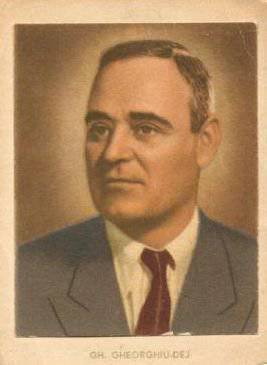 In November 1946, the Communists won the parliamentary elections. In the end, the king was forced to abdicate, and on December 30 1947 the Romanian People’s Republic was proclaimed. Its actual leader was the first secretary of the Central Committee of the Romanian Communist Party, George Gheorghiu-Dej (1901-1965) - a veteran of the Romanian communist movement. In 1947, the Romanian Communist Party merged with the Social Democratic Party, as a result of which the Romanian Labor Party was created. The communist reorganization of the Romanian state began, which included the establishment of one-party rule, collectivization and industrialization. Since Gheorghiu-Dej was a staunch Stalinist, he sought to learn from the experience of collectivization and industrialization in the Stalinist USSR, including using rather tough methods in relation to the opposition.
In November 1946, the Communists won the parliamentary elections. In the end, the king was forced to abdicate, and on December 30 1947 the Romanian People’s Republic was proclaimed. Its actual leader was the first secretary of the Central Committee of the Romanian Communist Party, George Gheorghiu-Dej (1901-1965) - a veteran of the Romanian communist movement. In 1947, the Romanian Communist Party merged with the Social Democratic Party, as a result of which the Romanian Labor Party was created. The communist reorganization of the Romanian state began, which included the establishment of one-party rule, collectivization and industrialization. Since Gheorghiu-Dej was a staunch Stalinist, he sought to learn from the experience of collectivization and industrialization in the Stalinist USSR, including using rather tough methods in relation to the opposition.However, in 1948-1965, when the country was actually led by Gheorghiu-Dej, Romania made a huge economic leap. The bulk of the investment was directed to the development of the Romanian industry, including the chemical and metallurgical industries. In this case, Gheorghiu-Dej after the death of I.V. Stalin and the de-Stalinization policy that began in the Soviet Union was able to ensure a relatively independent domestic and foreign policy course of Romania. So, unlike most other socialist countries of Eastern Europe, Soviet troops were not based in Romania. Romania traded freely with Western countries, while ideologically sticking to more radical communist (Stalinist) positions than the Soviet Union. An independent domestic and foreign policy was pursued and replaced in 1965 by the city of Gheorghiu-Deja as head of the Romanian state and the Communist Party Nicolae Ceausescu.
Nicolae Ceausescu
Nicolae Ceausescu was born on January 26 1918 in the village of Scornichesti in a large peasant family. In addition to Nicolae, his father Andruцă, a local peasant who worked as a tailor, had nine more children. The family lived poorly, but she managed to give her primary education to her son. Then, in 11 years, Nicholas was sent to Bucharest, to his older sister. There he began to master the shoemaking craft at the workshop of Alexander Sandulescu. The master was a member of the underground Romanian Communist Party and attracted the young student to political activities. From 1933, Ceausescu became involved in the activities of the communist movement - initially as a member of the Communist Youth Union. In 1936, he joined the Romanian Communist Party. By this time, young Ceausescu had several prison breaks in prison, during which he met with influential figures like the same George Gheorghiu-Dej, who became the patron saint of a convinced young communist. In 1936-1939 and 1940-1944 Nicolae Ceausescu was imprisoned in prisons of royal Romania. In the interim, he met Helena Petrescu (1919-1989), also a young Communist Party activist, who later became his wife and faithful ally.
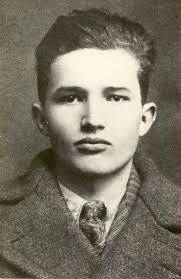 After Romania left the war against the USSR, Nicolae Ceausescu escaped from prison, and since the political situation in the country was changing rapidly, he quickly legalized and quickly made a career in the leadership of the Communist Party. He headed the Union of Communist Youth, and in 1945, at the age of 27 years, he was appointed head of the Supreme Political Directorate of the Armed Forces of Romania with the assignment of the military rank "Brigadier General" (although he had never served in the army before and did not have a higher or even average education). In 1947-1948 he headed the party obkomy in Dobrudja and Oltenia, then, from 1948 to 1950. He was the Minister of Agriculture of the People’s Republic of China. That Ceausescu was at the forefront of the policy of collectivization of the Romanian village pursued by the government of Gheorghiu-Deja. Later in 1950-1954. Ceausescu served as Deputy Minister of the Armed Forces of the People’s Republic of China, receiving the rank of Major General. From 1954, Mr. Nikolay became secretary of the Central Committee of the RRS, and from 1955 he became a member of the Politburo of the Central Committee of the RRS, joining the highest political elite of post-war Romania. Ceausescu's competence included, among other things, the leadership at the party level of the activities of the Romanian special services.
After Romania left the war against the USSR, Nicolae Ceausescu escaped from prison, and since the political situation in the country was changing rapidly, he quickly legalized and quickly made a career in the leadership of the Communist Party. He headed the Union of Communist Youth, and in 1945, at the age of 27 years, he was appointed head of the Supreme Political Directorate of the Armed Forces of Romania with the assignment of the military rank "Brigadier General" (although he had never served in the army before and did not have a higher or even average education). In 1947-1948 he headed the party obkomy in Dobrudja and Oltenia, then, from 1948 to 1950. He was the Minister of Agriculture of the People’s Republic of China. That Ceausescu was at the forefront of the policy of collectivization of the Romanian village pursued by the government of Gheorghiu-Deja. Later in 1950-1954. Ceausescu served as Deputy Minister of the Armed Forces of the People’s Republic of China, receiving the rank of Major General. From 1954, Mr. Nikolay became secretary of the Central Committee of the RRS, and from 1955 he became a member of the Politburo of the Central Committee of the RRS, joining the highest political elite of post-war Romania. Ceausescu's competence included, among other things, the leadership at the party level of the activities of the Romanian special services. 19 March 1965 Mr. Gheorghe Gheorghiu-Dejes passed away, and 22 March was Nicolae Ceausescu, who was 47 years old at the time, was elected first secretary of the Central Committee of the Romanian Workers Party. In July, 1965 was, on his initiative of the party, the former name returned - the Romanian Communist Party. A month later, in August 1965, the Romanian People’s Republic was renamed the Socialist Republic of Romania (SRR). In addition to the party leadership, Ceausescu became Chairman of the State Council - in 1967, and Supreme Commander - Chairman of the Defense Council in 1969. Thus, all the real power in Romania was concentrated in the hands of Ceausescu. This subsequently gave his critics the reason to accuse Ceausescu of establishing a dictatorial regime and creating a "personality cult." Certainly, both of these took place, but opponents of the Ceausescu regime constantly forget about the other side of the Romanian leader’s leadership - the unprecedented development of the economy, culture and science in a country that has always been on the periphery of the European world. It was the years of Ceausescu's rule, perhaps, that was the only period in the history of the country when it could be counted among the truly developed and independent countries.
Romania’s Golden Age
The independence of Romania in foreign policy was a great achievement of Ceausescu as a politician. Although its foundation began to be laid under his predecessor, Gheorghiu Dejé, as party leader, the autonomous foreign policy of the Romanian leadership reached its apogee during the years of the Ceausescu rule. Romania was friends and wanted to trade with anyone, which was due to the adoption of a special document back in 1964 confirming the autonomy of each communist party in choosing the optimal political development path for their country. Thus, the Romanian leadership avoided the need to make a choice in favor of the Soviet or Chinese course in the world communist movement, while maintaining good relations with both the USSR and the PRC.
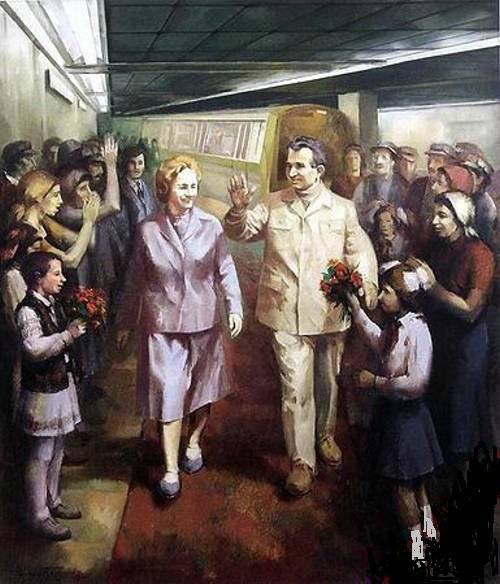
However, the relations of Romania with the Soviet Union were not so cloudless. Although openly speaking, the USSR never clashed with the USSR, but hidden contradictions existed and were connected, first of all, with the expansionist aspirations of the Romanian leadership. The fact is that nationalism has always been the “sore point” of the Romanian government. Like many other Eastern European countries that have been under foreign control for a long time, for Romania, issues of national identity and national revival have always been a sore point. This was emphasized by the royal authorities, the “iron guards”, and numerous nationalist parties and groups. This problem was not avoided by socialist Romania. Although there were no open claims to the Soviet Union (and they couldn’t be presented - Ceausescu adequately perceived his place in world and European politics), but, of course, many Romanian politicians looked at Moldova and Bessarabia with ill-concealed irritation, considering them the historical territories of Romanian of the state.
On the other hand, the mythology of the “Great Romania”, combined with the Leninist-Stalinist vision of communist construction, gave impetus to the development of national statehood and the economy - strengthening the political system, industrialization, “cultivating” the broad masses of the proletarian and peasant population. The cause of cool relations with the Soviet Union was Stalinism and Ceausescu. The Romanian Communist Party, although it condemned the excesses of the policy of Gheorghe Gheorghiu-Deja after his death and Ceausescu's coming to power, generally followed the Stalinist concept of industrialization.
Realizing the complexity of his position between the capitalist West and the Soviet Union insisting on the adoption of its ideological line, Ceausescu sought to make Romania a self-sufficient state, able to rely on its own forces. In many ways he succeeded. Moreover - practically without the use of Soviet assistance. Ceausescu had to apply for loans to Western countries, which, although they were on the completely opposite “line of barricades” ideologically, did not refuse Romania for reasons of opposing it to the Soviet Union. Thanks to the use of Western loans, Ceausescu was able to modernize the Romanian economy, creating his own and highly developed heavy and light industry. During his reign, Romania produced its own cars, Tanks, airplanes, and not to mention the large volumes of furniture, food, textile, shoe production. The Romanian army was significantly strengthened, becoming one of the most powerful and well-armed in the region (not counting the Soviet, of course).
Among the obvious achievements can be called the creation of not only industrial enterprises of machine-building, chemical, metallurgical profile, but also the development of the textile and food industry. Finished products prevailed in Romanian exports, which confirmed not the raw material, but the industrial status of the country. Developed and leisure infrastructure. Thus, a network of resorts was built in the Carpathian Mountains, where foreign tourists came - not only from socialist, but also from capitalist countries. With regard to indicators of the industrial development of the country, in 1974, the volume of industrial production in the country was a hundred times higher than the 1944 year. In 15, national income has grown.
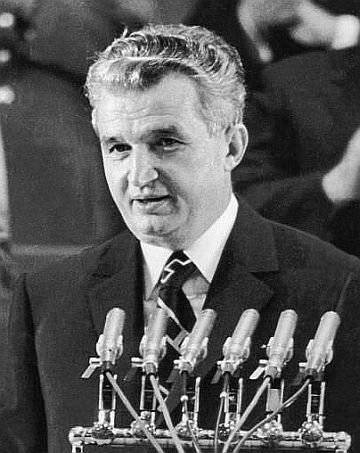 Thus, the money borrowed from Western countries was spent for future use by Ceausescu on the development of the national economy, which was led by socialist principles. At the same time, in 1980-s. The Ceausescu government managed to pay off its debt to Western countries. Meanwhile, in 1985, the Gorbachev “new turn” began in the political and economic life of the Soviet Union, which ideally corresponded to the US plans to weaken and further disorganize and destroy the USSR and the Soviet bloc. In the Soviet Union and other socialist countries of Eastern Europe, the “fifth column” of the West strenuously pushed ideas about the non-viability of the socialist model in economic terms, about the extraordinary brutality of the socialist “totalitarian regimes” that suppressed any dissent.
Thus, the money borrowed from Western countries was spent for future use by Ceausescu on the development of the national economy, which was led by socialist principles. At the same time, in 1980-s. The Ceausescu government managed to pay off its debt to Western countries. Meanwhile, in 1985, the Gorbachev “new turn” began in the political and economic life of the Soviet Union, which ideally corresponded to the US plans to weaken and further disorganize and destroy the USSR and the Soviet bloc. In the Soviet Union and other socialist countries of Eastern Europe, the “fifth column” of the West strenuously pushed ideas about the non-viability of the socialist model in economic terms, about the extraordinary brutality of the socialist “totalitarian regimes” that suppressed any dissent. The collapse of the Soviet bloc was being prepared and in this context Romania under the leadership of Ceausescu was a very uncomfortable country. After all, Ceausescu was not going to give up the socialist course of development - he was, unlike Mikhail Gorbachev, a “classical formation” communist — an old revolutionary for whom the “school of life” was not a career of Komsomol and party worker, but the underground and long years of imprisonment.
The existence of a state like Romania, that is, uncontrolled neither by the West, nor by “restructuring” in the Western way and in the Western interests of the Soviet Union, and even in the center of Europe, was a serious problem. In fact, it violated the plans of the United States and its allies to quickly destroy socialist ideology in Eastern Europe. Therefore, experts of Western intelligence services began to actively develop a project to overthrow the objectionable Ceausescu and establish control over Romania. Moreover, Romania, located near the borders of Russia / Soviet Union, has always been of strategic interest for the West — first for England and France, then for Nazi Germany, and then for the United States of America.
It must be said that Ceausescu, even before the beginning of perestroika in the USSR, was well aware that the Romanian state, having chosen a path that was truly independent both politically and economically, should be able to stand up for itself in military, intelligence and counterintelligence terms. Therefore, the Socialist Republic of Romania spent considerable forces and means on strengthening its military potential, as well as on the maintenance and development of the state security forces.
Back in August, 1948, almost simultaneously with the approval of the new communist government, in Romania, the Department of State Security (Departamentul Securităţii Statului) was created - a special service that received wide fame as part of its name - “Securitate”. The "Securitate" consisted of the Directorate General for Technical Operations (radio interception and decryption), the Directorate of Counterintelligence (the fight against foreign spies), the Directorate for Prisoners' Affairs (penitentiary institutions), the Directorate of Internal Security (exercised control over the "Securitate" itself), the National Commission on visas and passports (similar to the Soviet OVIR), the Directorate of the State Security Forces (led by the 20-thousand troops, guarding important state facilities), the Police Directorate (supervised the police) and the Directorate “V” (responsible for organizing the personal security of the Romanian leadership).
Ceausescu had placed great hopes on the Securitate, trusting the secret service much more than the less politically reliable army. Moreover, pro-Western sentiments gradually began to penetrate into the political and military leadership of Romania in the 1980-s. Since Romania, which was trying to quickly get rid of debt dependence and pay off loans granted to it by Western countries, existed for some time in a mode of saving money, many high-ranking functionaries began to show discontent with the deterioration of their financial situation. There is no doubt that a certain part of the Romanian elite ended up “on the backing” of the American special services. The latter were carrying out plans for a “popular uprising” in Romania, which was to overthrow the Ceausescu government. At the same time, in its decision to destroy the socialist regime in Romania, the United States enlisted the unofficial support of the Soviet Union, at the end of the 1980s. already fully following in the wake of American interests. American leaders set up the Soviet Secretary General, Mikhail Gorbachev, against Ceausescu, while at the same time pushing him towards an "independent solution to the Romanian problem." The Soviet leadership, which had only ended the ten-year war in Afghanistan, did not want to get involved in yet another armed conflict, so the United States decided to “throw down” Ceausescu with the actual support of the USSR by inflaming so-called “Popular revolution” - allegedly the Romanian people themselves, dissatisfied with the dictatorial regime, will stand on the barricades and overthrow the Ceausescu government. This required strengthening the information war against the internal political course of Ceausescu and the Romanian Communist Party.
"Orange Revolution" 1989 sample
In the Soviet press began to appear critical materials in relation to Ceausescu, who was called not only as a Stalinist and a violator of Leninist principles in the construction of communism. Ceausescu, who was re-elected General Secretary of the Central Committee of the Romanian Communist Party in November 1989, sharply criticized the Perestroika policy pursued by the Soviet leadership and prophetically claimed that it would lead socialism to collapse. The West, through the mouths of Romanian oppositionists who fled to the United States, in turn, wound up Romanian society with massive propaganda. Ceausescu was declared the main culprit in the deteriorating economic situation of the country. The West put pressure on Ceausescu through Mikhail Gorbachev. The last meeting of the Romanian leader with the Soviet Secretary General took place on December 6 1989. On it, Mikhail Gorbachev once again began to convince Nicolae Ceausescu of the need for political and economic reforms in Romania. To which the President of the SRR gave his famous answer: “Rather, the Danube will begin to flow backwards, than restructuring will take place in Romania.” Mikhail Sergeyevich, not seriously offended, threatened with consequences. It took less than three weeks, as his words showed his fatal correctness.
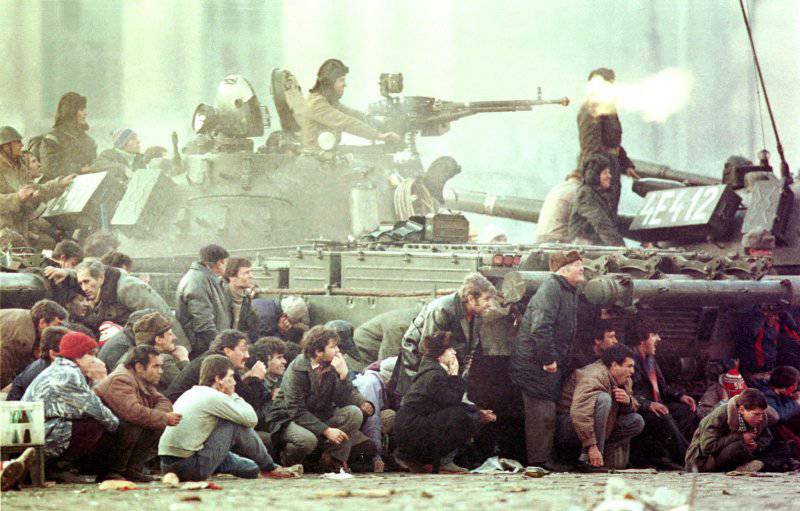
The “Orange Revolution” in Romania was carried out according to the classical scenario, which we could observe in our days in the Arab countries, Georgia, and more recently in Ukraine. At first, an “opposition” was created, headed by officials and party functionaries of the same Ceausescu regime recruited by the West. This is the first refutation of the supposedly “popular” character of the Romanian revolution. There were no revolutionary movements created by the “people”, no “people's leaders” appeared - saving time and money, the Western agents simply recruited a number of former and current political leaders of the SRR, including party functionaries and representatives of the army command.
The primary role in the "opposition", as it turned out, was played by Ion Iliescu (R.N.XX). At that time, fifty-nineties Iliesku his entire adult life was Komsomol and party functionary. He joined the Union of Communist Youth in 1930, in the party in 1944, and in 1953 he became a member of the Central Committee of the Romanian Communist Party. Back in the middle of 1968's. Ceausescu, obviously having some information, pushed Iliescu away from significant posts in the party hierarchy and transferred him to the post of chairman of the National Water Management Board. In 1970, Mr. Iliescu was removed from this position and expelled from the Central Committee of the RCP. At the same time, the “terrible dictator” Ceausescu did not deal with him and did not even put him in prison. As it turned out - in vain: to the very Ceausescu, Ion Iliescu was not so supportive.
Western agents used a national minority to provoke a “popular revolution” across the country as a skirmisher. 16 December 1989 in Timisoara, the key city in the region where ethnic Hungarians prevailed, held a rally in support of the Hungarian opposition figure Laszlo Tekes, who was being evicted by order of the authorities. The rally turned into riots, and economic and social slogans were deliberately raised. Soon the unrest spread throughout the country and in Bucharest, on the Opera Square, appeared "Maidan". 17 December 1989. Military units and employees of the "Securitate" opened fire on the protesters. The world's leading TV channels showed footage from Romania, trying to show the world community the "bloodlust of the dictator Ceausescu."
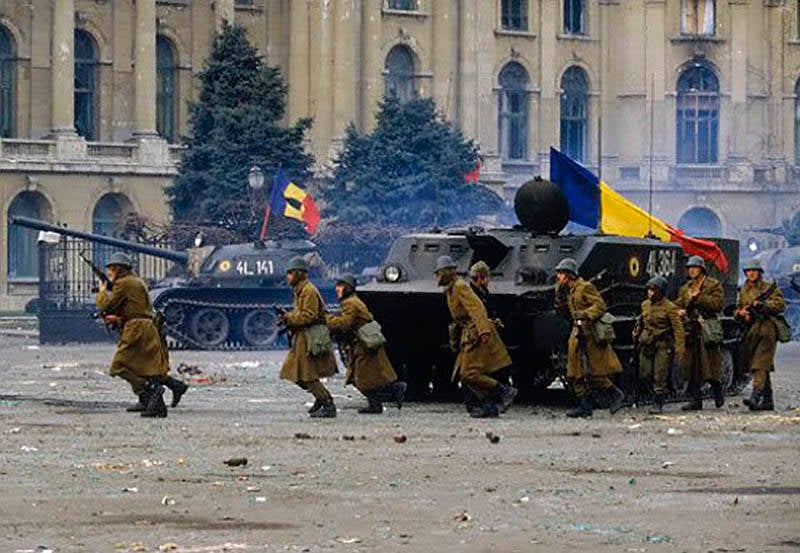
December 18 Ceausescu went on a visit to Iran, but on December 20 was forced to suspend the visit and return to Romania. Here he held an emergency meeting on state security and the state of emergency in the country. On December 21, a state of emergency was introduced on the territory of Timis County, populated by the Hungarians. Ceausescu himself came out with a speech to the people - about a hundred thousand people gathered in a rally in support of him. However, suddenly the provocateurs in the crowd began shouting "Down", blew up the squib. As a result, the rally was disorganized, and Ceausescu left the podium. Riots began on the streets of Bucharest, army units were introduced. Skirmishes between rebels, military units, Securitate officers, and criminal groups began. December 22 was found murdered by the Minister of Defense of the country, General Vasile Mil - he allegedly shot himself, not wanting to give the troops an order to suppress popular demonstrations. On the same day, at 12.06, Ceausescu, along with his wife Elena and several guards and comrades in arms, fled in a helicopter that had risen from the roof of the residence of the Central Committee of the Romanian Communist Party, which had by this time been besieged by crowds of demonstrators. The opposition seized the Bucharest television station and announced the overthrow of the secretary general.
Pseudo vessel and murder
The Ceausescu couple went first to their dacha, from where they expected to leave for the reserve command post, which General Stanculescu was to provide. However, the latter, as it turned out, was also among the rebels (that is, “oppositionists”). Then Ceausescu tried to break into Pitesti, who remained loyal to the General Secretary, but in the process of movement was captured by the rebels. For two days the couple of Ceausescu were in Targovishte on the territory of a military unit, and for some time the elderly (and they were 71 and 70 years) were kept inside the armored personnel carrier.
December 25 held what the opposition and their American patrons called the court - of course, without any preliminary investigation. Major-General Djiku Popa, Deputy Chairman of the Military Tribunal for Bucharest, was appointed the state prosecutor. The spouses of Ceausescu were accused under the following articles of the Romanian Penal Code: the destruction of the national economy, the armed intervention against the people and the state, the destruction of state institutions, genocide. The Ceausescu couple refused to recognize themselves as mentally ill, were found guilty on all charges and sentenced to capital punishment - the death penalty through execution. According to the decision of the tribunal, ten days should have been allocated to appeal the death sentence. But the oppositionists were so afraid of Ceausescu that they decided to kill him and his spouse immediately, fearing that they might be beaten off by armed supporters or employees of the Securitate.
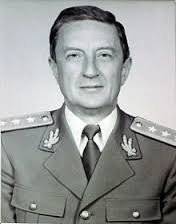 - General Victor Stankulescu
- General Victor StankulescuFor the murder of the spouses of Ceausescu, General Stenculescu, who was the former minister of defense of the rebels, identified an officer and three soldiers. In 16.00, Nicolae and Elena Ceausescu were barred into the courtyard of the military unit’s barracks and shot. Their bodies lay day and night at the football stadium, and then were buried in the Gencha cemetery in Bucharest under other names (the executioners hoped that they would interfere with the “worship” of the graves by supporters of the communist ideology and the Ceausescu regime). Only later were the bodies exhumed, reburied and a modest monument was erected on the grave.
In fact, the execution of Ceausescu's spouses was an ordinary political assassination disguised under a court sentence. The politician, who turned out to be disagreeable to both the United States and the Gorbachev USSR, was accused of human rights violations and political repression, but he himself, in fact, was the victim of political murder. The world community of a “liberal” orientation is more likely to have approved the murder of Ceausescu. The shooting was filmed on video and was shown on Romanian television. Pro-American Soviet leaders were among the first to respond positively to the murder of Ceausescu's spouses. The then USSR Foreign Minister Eduard Shevardnadze soon arrived in Romania to congratulate the new leadership of the country. By the way, it consisted of former party functionaries, who had been removed from power during the years of Ceausescu's rule and reoriented towards cooperation with the West.
Already in the second half of the 2000-s, many ominous details of the 20-25 events of December 1989 were revealed. In particular, it was found that the order to shoot at the crowd was not given by Nicolae Ceausescu (as stated by the world media), but by General Victor Stenculescu (by the way, this man, who was directly responsible for the murder of Ceausescu, stayed for a long time as an army minister, he was dismissed, and in 2008, he was arrested and convicted on charges of leading a massacre of people in Timisoara). And as a result of shootings in the streets of Bucharest and other Romanian cities, it was not thousands of people 64 (as the world media said), but less than a thousand. There is information about participation in the provocations during the rallies in the Romanian capital of Soviet intelligence officers. This is not surprising, since Mikhail Gorbachev himself supported the overthrow of Ceausescu and received a blank check from the American leadership on this score: Washington even allowed the Soviet Union, if desired, to remove the Ceausescu regime by armed means. True, this did not happen.
After years in the Romanian society, hysteria about the attitude to Ceausescu's personality subsided. The materials of sociological polls of Romanian citizens show that modern Romanians for the most part have a positive attitude to the figure of Nicolae Ceausescu and, at least, they claim that he should not have been executed. So, 49% of respondents believe that Nicolae Ceausescu was a positive leader of the state, more than 50% regret his death, 84% believe that shooting Ceausescu was illegal without investigation and trial.
“Romania today is a market for foreign goods, in fact, an economic colony of international capital. Over the past twenty years, the national industry has been eliminated, and strategic sectors sold to foreigners. Salaries have been cut, unemployment is increasing, drugs and prostitution have appeared. Although each year in December, the spells of politicians about “freedom” and “democracy” are heard, people understand that this is a shameless lie of the most corrupt, incompetent and arrogant political class in the entire history of Romanians. Therefore, today the Romanians believe that December 1989 of the year turned out to be a misfire, an unsuccessful start, ”says historian Florin Constantinio (quoted in: Morozov N. December 1989 events in Romania: revolution or putsch? // Reserve Reserve. 2009, No. 6 ( 68)). Flowers are brought today to the grave into which 2010 was reburied after the exhumation of Nicolae Ceausescu and Elena Ceausescu (Petrescu). Realizing what the pro-American “people's revolution” brought them, many Romanians regret the murder of Ceausescu and, in general, the collapse of socialism.
Information